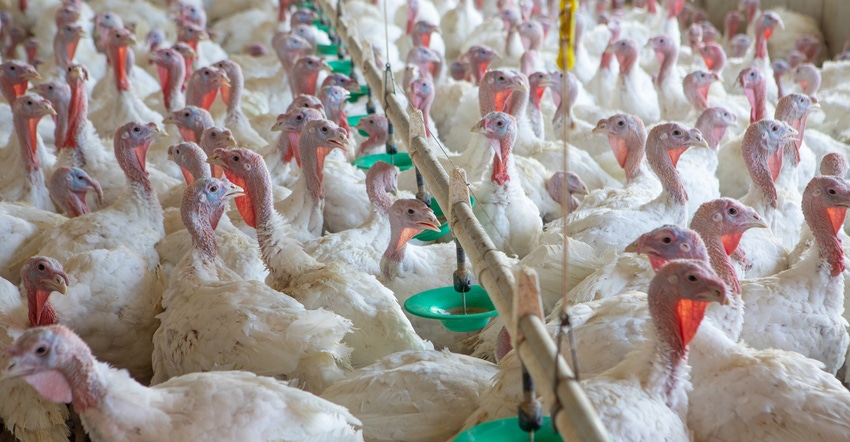
Poultry farms in Minnesota continue to be impacted with the spread of H5N1 highly pathogenic avian influenza.
As of April 14, HPAI was confirmed on 38 sites totaling 1.84 million birds, according to the Minnesota Board of Animal Health website. Detections increased through early April, with six premises confirmed positive between April 10-12.
Seventeen counties are affected — Becker, Benton, Blue Earth, Big Stone, Dodge, Kandiyohi, Lac Qui Parle, Le Sueur, Meeker, Mower, Morrison, Ottertail, Renville, Stearns, Swift, Waseca and Yellow Medicine. Kandiyohi and Morrison are the most impacted, each with six HPAI-infected premises.
In early April , Gov. Tim Walz signed Chapter 47, HF 3217 into law, which advances the state’s continued efforts to control and contain HPAI. The legislation includes $1 million for emergency response activities, including disease surveillance and purchasing testing supplies, as well as provisions to protect the privacy of farmers and flock owners who seek mental health care.
The bill helps protect the privacy of Minnesotans who seek mental or behavioral health assistance or who contact the Minnesota Farm and Rural Helpline by preventing public access to information collected and maintained by the Minnesota Department of Agriculture, the Minnesota state college and university system, and other pass-through recipients.
Walz also called for the activation of a USDA emergency response team to support the state’s disease control and containment efforts of H5N1. The USDA emergency team is working with the state’s Agricultural Incident Management Team — consisting of experts from the Minnesota Board of Animal Health and the Minnesota Department of Agriculture — to help with quarantining infected flocks, supporting infected-site response activities and disease surveillance, and coordinating state and federal logistics and finances.
Temporary ban on poultry swaps, exhibitions
In response to HPAI, MBAH is issued a statewide ban on all poultry sales and exhibitions from April 1 through May 1. The ban includes all live poultry community sales, swaps, fairs, exhibitions and other events where live poultry and susceptible birds are brought together.
Direct sales of baby poultry, either in stores or via mail by National Poultry Improvement Plan-authorized sellers, are still allowed.
Monitoring wild birds
Meanwhile, the Minnesota Department of Natural Resources is coordinating with USDA’s Plant and Animal Health Inspection Service to conduct surveillance for HPAI in wild birds.
The DNR is collaborating with MBAH to share information regarding potential wild bird and poultry HPAI infections.
Residents are asked to report the following to local DNR wildlife staff or the DNR information center at 888-646-6367.
five or more dead wild birds of any kind found in one location during the same time frame
one or more raptors or waterfowl alive but exhibiting signs of sickness
one or more raptors or waterfowl with no apparent cause of death
DNR will submit birds suspected of potentially carrying HPAI to the National Wildlife Health Center or the Minnesota Veterinary Diagnostic Laboratory for testing.
Hotlines
MBAH provides an avian influenza hotline number for questions and to report sick birds. Call 833-454-0156:
Press 1 to report a sick domestic bird.
Press 2 to report a sick or dead wild bird.
Press 3 for biosecurity and general poultry management questions.
Press 4 for permitting and control areas
Press 5 for all other inquiries.
For more information, visit the MBAH avian influenza webpage.
Consumer safety
Poultry is safe to eat, and proper handling and cooking of poultry and eggs to an internal temperature of 165 degrees F is always advised. The Centers for Disease Control and Prevention says this strain of avian influenza is a low risk to the public. No human cases of these avian influenza viruses have been detected in the United States.
About the Author(s)
You May Also Like






